Georgia Clark: How I overcame bullying and suicide at 13
News Corp journalist Georgia Clark survived a suicide attempt at just 13-years-old after relentless bullying at a prestigious North Shore school, where not even death threats were enough for authorites to intervene. This is how she rose above her demons to find the light.
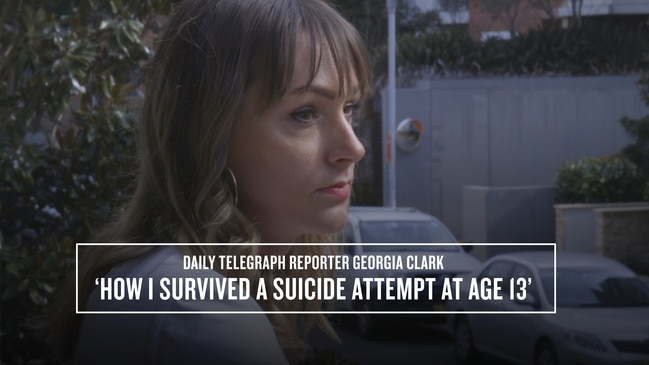
NSW
Don't miss out on the headlines from NSW. Followed categories will be added to My News.
- Teenage girl suicides trapped in school COVID bubble
- What you get as a subscriber to The Daily Telegraph
Thirteen years ago, I fell into a spiral of depression and attempted suicide after severe bullying at high school.
Today, I live my dream as a news reporter and come home to an adoring husband.
This is my story on finding the light in darkness and why the scars of our past can become our greatest strength.
GEORGIA’S STORY
“You have so much going for you and so much to give,” the intensive care nurse said as I lay hooked to an IV drip at Royal North Shore Hospital.
I don’t remember her name, just that her words gave me hope in what was the bleakest moment of my life. The hours before remain a blur but the preceding months were the toughest of my teenage life.
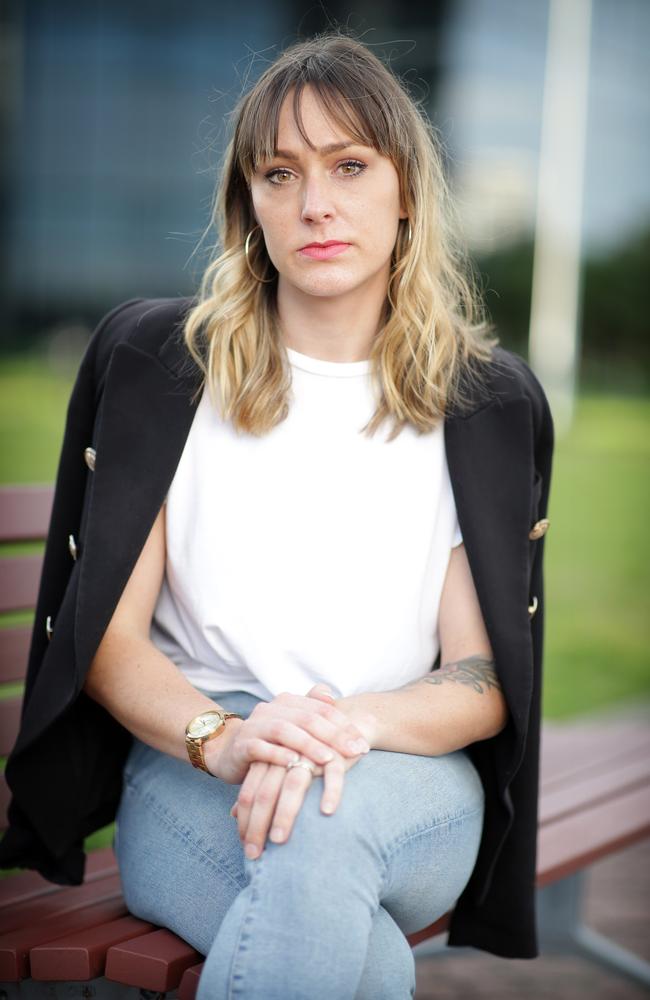
As a 13-year-old student at Monte Sant’ Angelo Mercy College, a prestigious all-girls school in North Sydney, I hit rock bottom after a relentless campaign of bullying.
I had for months been on the receiving end of cyber-bullying that would later escalate to death threats.
A group of girls, themselves struggling with depression and self-harm, targeted me for reasons I still don’t understand.
Locked in my bedroom, eyes glued to the computer, I was derided, attacked, humiliated by other students online every day.
MORE
■Nine students lose lives in north shore school suicide ‘cluster’
■Family believes system failed Tumut suicide teen Ethan Day
My parents were unaware how bad things were, as is usually the case with cyber-bullying.
When they did eventually find out, evidence of death threats and attacks were not enough for the school to intervene.
Desperate to help, my mother took a bundle of evidence to the school’s social counsellor.
“We can’t do anything for you because most of it is happening after hours,” she told her.
In the darkest wallow of depression, I was unable to help myself and the system had let me down.
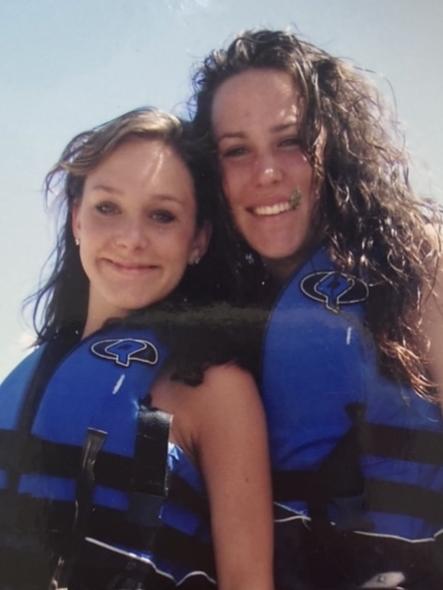
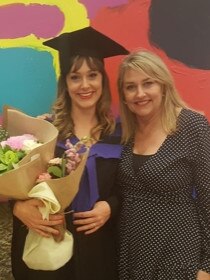
Within months, I was in a hospital bed after an attempt on my own life. Desperate for help that I never received, I had run out of fight.
In the days that followed, the incredible care of doctors and nurses, visits from adoring family and friends began to help me to find the light.
But the following months really changed the course of my life.
Getting help was the start of my journey and the reason I write today — in the midst of The Daily and Sunday Telegraph We Can Talk campaign and with R U OK? Day next week — to encourage anyone who is struggling to reach out.
An incredible therapist helped me to see that pain is something we all carry and life’s journey is not how much we suffer, but how we respond.
The support of my parents in moving me to a new school would later give me the fresh start I needed.
St Andrew’s Cathedral School’s former principal Dr Philip Heath saw potential in me.
I wasn’t just a number but a person brimming with potential. Embraced by the school’s supportive approach to learning, I excelled as a student, taking first place in subjects, graduating with among the highest ATARs in the state’s honour roll and studying acting on the weekend at the National Institute of Dramatic Art.
In the years that followed, I studied to become a journalist, travelling to the slums of Jakarta to complete an internship with CNN and graduating with a Bachelor of Journalism and Laws with Honours.
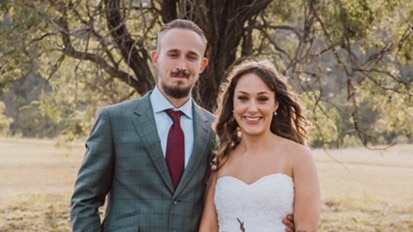
Since then I have travelled the world, married my soulmate, and worked in my dream job. I hope that sharing my story will inspire others to see that there is always hope. No matter how dark it may seem, no matter how dim the light, it is always there.
And no matter how much you are struggling, you are not alone, and you can turn your life around. Reaching out is the first step.
Today, I am one of the lucky ones, and while my scars have made me stronger and I am now strengthened by my past, thousands of young people remain in desperate need of help.
A staggering 75 per cent of mental health problems occur before the age of 25.
According to the Black Dog Institute, one in five Australians are struggling with mental illness and every day, at least six Australians die from suicide.
The recent string of suicides in Sydney schools shows that mental health interventions are urgently needed, particularly in private schools. We have been in the grips of a youth mental health crisis for too long and more needs to be done.
While the K-10 curriculum mandates lessons about mental health support and prevention in PDHPE class, in Year 11 and 12, students are left on their own. This needs to change.
Outside of this, the NSW Government provides different levels of mental health support to public schools, but at independent schools, the approach varies widely. As I have learnt, this can have devastating consequences.
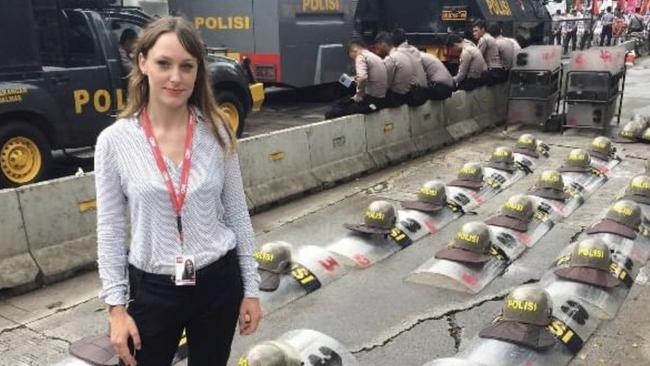
If I learnt anything from my experience it’s that young people in crisis often do not know how to seek help and stigma is the biggest roadblock to seeking care. This is why the key to healthier and happier Australians lies with the state’s education system.
Drastic reforms are needed to reduce the stigma to ensure reports of bullying are taken seriously.
Critically, we need an anonymous service in schools to allow teachers, students and parents to report bullying and children at risk of self-harm or suicide or who might be struggling. This would allow people to get the help they need before it’s too late.
These reports need to be dealt with independently — outside of school — and access to independent counsellors and psychologists must be promptly provided. School counsellors are not enough.
Young people today are facing some of the greatest challenges in modern history — the constant threat of climate change, the competing demands of modern life, a fractured family unit and the devastation of disasters like the pandemic.
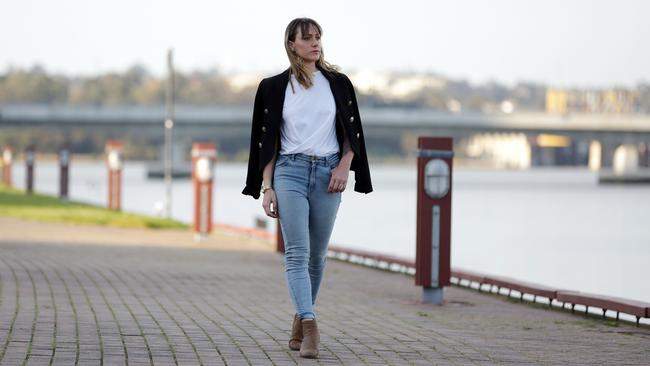
It is our fundamental responsibility to raise a generation of young adults who can navigate these challenges because, as I have learnt, pain and suffering is something that unites us all.
To be alive is a privilege and every moment one to cherish, but sometimes, to find the light in darkness we just need to be shown the way.
As a nurse once told me: “You have so much to give and so much going for you.”
Never forget that.
Reach out and get help by contacting Lifeline on 13 11 14.
